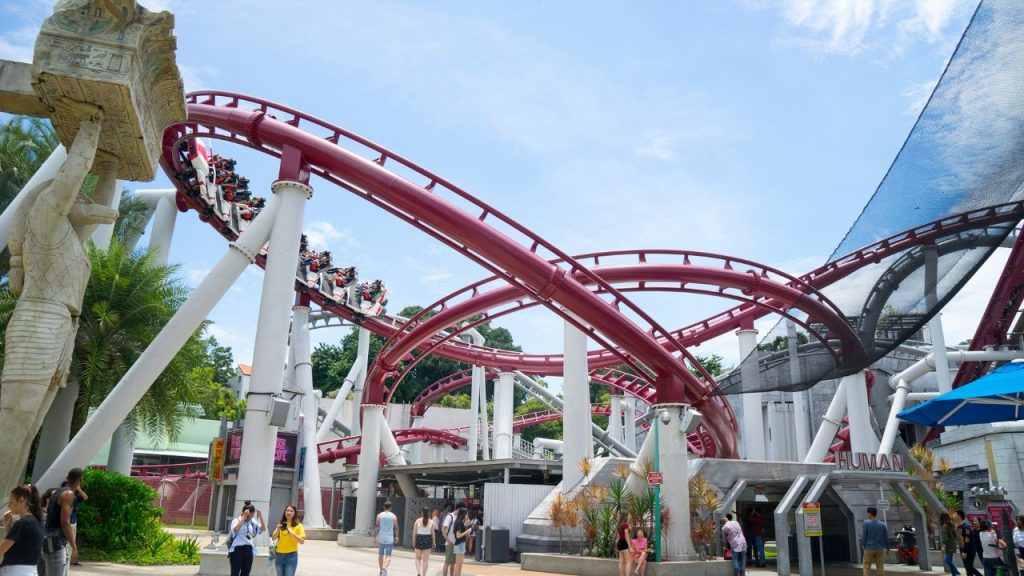How to Start a Theme Park in India: A Guide for Startups and Entrepreneurs

Starting a theme park in India offers a thrilling opportunity for entrepreneurs and startups interested in venturing into a vibrant and promising market. The amusement park sector in India is experiencing growth, driven by an expanding middle class and a youthful population in search of new entertainment avenues. This article outlines a detailed roadmap for establishing a theme park in India, from the initial concept to operational strategies, and highlights how Niir Project Consultancy Services (NPCS) can support the success of your project.
-
Market Research and Feasibility Study
Initiating a theme park project requires comprehensive market research and a feasibility study. These preliminary steps are essential to grasp the nuances of the local market, understand consumer preferences, and assess the competitive environment. Focus areas should include:
Demographic Analysis:
Understanding the age, income levels, and entertainment preferences of potential visitors.
Location Study:
Identifying a location that is accessible and has the potential to attract large crowds. Proximity to cities or tourist spots can be advantageous.
Competitor Analysis:
Reviewing existing theme parks and entertainment facilities to identify gaps and opportunities.
NPCS provides detailed market research reports that help in assessing these factors comprehensively, guiding entrepreneurs in making informed decisions.
-
Concept Development
Developing a unique and appealing concept is essential for distinguishing your theme park from competitors. This involves:
Theme Selection:
Choosing a theme that resonates with the target audience, such as Bollywood, wildlife, fantasy, or cultural heritage.
Attraction Planning:
Designing a mix of attractions such as rides, shows, and interactive experiences that cater to different age groups and interests.
Technology Integration:
Incorporating technology for enhancing visitor experiences through virtual reality, augmented reality, and mobile app integration for navigation and payments.
-
Business Planning and Strategy
A detailed business plan is critical for the success of your theme park. This should include:
Investment Analysis:
Estimating the total capital investment needed for land acquisition, construction, equipment, and initial working capital.
Revenue Model:
Developing a revenue strategy through ticket sales, memberships, in-park purchases, and potential partnerships for branding and promotions.
Operational Strategy:
Planning the day-to-day operations including staffing, maintenance, customer service, and safety protocols.
NPCS can assist in preparing a comprehensive business plan and Detailed Project Report (DPR) that outlines all the financial and operational aspects of the theme park project.
Visit this Page for More Information: Start a Business in Media and Entertainment Sector
-
Regulatory Approvals and Licensing
Obtaining the necessary regulatory approvals and licenses is a critical step. This may involve:
Land Use and Zoning Permissions:
Ensuring the land is zoned appropriately for commercial entertainment use.
Environmental Clearances:
Securing environmental clearances, particularly if the site is near ecologically sensitive areas.
Safety and Health Regulations:
Complying with all national and local safety guidelines and health regulations to ensure visitor safety.
NPCS provides guidance in navigating the complex regulatory landscape, helping clients acquire all necessary permissions efficiently.
-
Construction and Development
Constructing a theme park requires meticulous planning and execution. This includes:
Infrastructure Development:
Building the basic infrastructure such as roads, parking, utilities, and essential services.
Theme Park Layout:
Developing the layout in accordance with the theme and ensuring optimal flow of visitors.
Ride Installation and Testing:
Installing rides and attractions as per safety standards and conducting rigorous testing.
-
Marketing and Launch
A strategic marketing plan is essential to create buzz and attract visitors. Strategies might include:
Branding:
Creating a strong brand that captures the essence of the theme park.
Promotional Campaigns:
Utilizing online and offline channels for promotions, including social media, TV ads, and public relations events.
Soft Launch:
Organizing a soft launch to gather feedback and make adjustments before the grand opening.
-
Operations and Management
Once the park is operational, effective management is key to its ongoing success. This includes:
Visitor Experience Management:
Ensuring visitors have a memorable experience through exceptional service, quick response to feedback, and constant enhancements.
Financial Management:
Monitoring financial performance, managing costs, and optimizing revenue streams.
Continuous Improvement:
Regularly updating attractions and hosting special events to keep the theme park fresh and exciting.
Related Feasibility Study Report: Water Park
Launching and Expanding a Theme Park in India
After a theme park in India becomes operational, the emphasis shifts to maintaining growth, broadening its reach, and improving the guest experience. Here we explore the ongoing management and strategic initiatives essential for the enduring success of your theme park project.
Staff Training and Development
The success of a theme park hinges on a well-trained staff. By investing in ongoing training focused on customer service, safety, and operational efficiency, you can significantly improve the guest experience. Programs aimed at developing leadership skills among management staff ensure smooth operations that adapt to the evolving needs of the business.
Technological Enhancements
Incorporating cutting-edge technology is crucial for operational efficiency and guest satisfaction. Systems such as RFID for access and rides, mobile apps for personalized schedules, and AI for analyzing visitor trends enhance the park’s operational capabilities. Continuously updating these technologies keeps the park modern and appealing for return visitors.
Expansion Strategies
As the theme park gains traction, considering expansion strategies is key to sustaining growth. This could involve introducing new attractions, expanding current themes, or creating entirely new themed areas. Developing adjacent water parks or adventure zones can diversify offerings and appeal to a wider audience.
Partnerships and Collaborations
Establishing strategic partnerships with brands, entertainment firms, or global theme parks can offer unique content and experiences that draw more visitors. Sponsorship deals can help alleviate some operational costs, and consulting with international theme park experts can elevate standards of service and innovation.
Customer Feedback and Quality Assurance
High quality standards and improvements based on customer feedback are essential for ongoing success. Implementing effective systems for feedback collection and analysis—through surveys, social media, or direct customer interactions—helps pinpoint improvement areas. Regular quality audits and checks ensure the park remains appealing and operates efficiently.
Marketing and Promotional Innovations
Continual innovation in marketing strategies keeps the park relevant. This may include digital marketing targeting specific demographics, seasonal promotions, and engaging online content that attracts visitors throughout the year. Traditional advertising, community involvement, and participation in tourism fairs are also important.
Read our Book Here: Investment Opportunities In Hospitality, Medical, Entertainment, Ware Housing & Real Estate Projects (with 15 Project Profiles)
Crisis Management and Contingency Planning
Effective crisis management is crucial to protect the park and its visitors from unforeseen events like natural disasters or health emergencies. Detailed contingency plans and regular staff drills ensure preparedness. Comprehensive insurance coverage is vital to mitigate financial risks from such events.
Sustainability Practices
Adopting sustainable practices not only complies with environmental laws but also attracts eco-conscious guests. Initiatives might include waste recycling programs, using renewable energy, and water conservation through advanced irrigation systems for landscaped areas.
Conclusion
Launching and operating a theme park in India presents a complex yet fulfilling challenge, blending creativity with strategic and operational expertise. NPCS is equipped to support each phase of this venture, providing expert advice, comprehensive project reports, and ongoing support to ensure your theme park not only launches but flourishes in the competitive entertainment market. With thoughtful planning, a commitment to quality, and constant innovation, your theme park can become a celebrated destination that delivers enchanting experiences for all visitors.
See More Links:
Start a Business in Middle East Countries
Most Demandable Business Ideas for Startups
Start a Business in Potential Countries for Doing Business
Best Industry for Doing Business
Business Ideas with Low, Medium & High Investment



